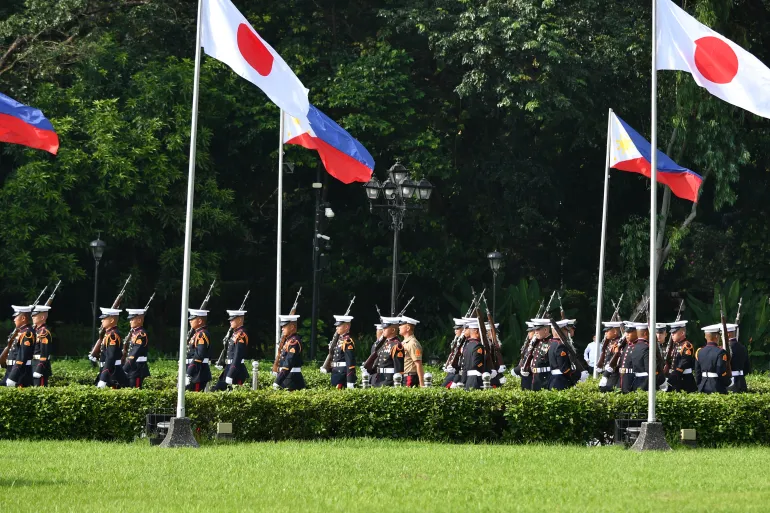Philippines has officially ratified a historic defense agreement with Japan, marking a significant milestone in their evolving military partnership. This move comes at a time of increased tensions in the region, particularly concerning China’s actions in the South China Sea.
Strengthening Military Ties
The defense agreement, known as the Reciprocal Access Agreement (RAA), allows Japanese and Philippine military forces to deploy on each other’s territory. This framework facilitates cooperation in training, disaster response, and military operations.
The Philippine Senate ratified the pact on Monday, signaling a commitment to deepen military ties with Japan. The agreement emphasises the shared goal of promoting regional peace, security, and stability in the Indo-Pacific region.
Japan’s Role in the Philippines
Japan’s ambassador to the Philippines expressed optimism about the agreement, highlighting its potential to enhance cooperation between the two countries. Japan has already forged similar defense agreements with other nations, including Australia, the United Kingdom, and is in talks with France.
For the Philippines, this partnership represents a shift in relations. Once a victim of Japanese invasion during World War II, the country now sees Japan as a key ally in countering modern security threats.
Regional Concerns over China
The agreement comes as both nations face growing concerns about China’s assertiveness in the South China Sea. This vital waterway is a major shipping route, but it is also a region of intense territorial disputes.
China claims nearly the entire South China Sea, but its claims are contested by the Philippines, Vietnam, Malaysia, Brunei, and Taiwan. In recent years, confrontations between Chinese naval vessels and Philippine ships in contested waters have intensified. The RAA underscores a broader strategy to counterbalance China’s influence in the region by enhancing military partnerships and increasing the presence of allied forces.
Enhancing Military Cooperation
The RAA aims to streamline the movement of troops and equipment between the Philippines and Japan. This will make it easier for both nations to conduct joint combat training exercises and respond to natural disasters.
By improving interoperability, the agreement enhances the ability of both militaries to work together effectively. This cooperation extends beyond traditional defense roles, emphasising disaster relief and humanitarian assistance.
A Strategic Partnership
This defense pact is part of a broader trend of closer military ties between nations in the Indo-Pacific region. Both the Philippines and Japan host U.S. military bases and personnel, reflecting their strategic alignment with Washington’s vision for a free and open Indo-Pacific.
The partnership between the Philippines and Japan also complements Japan’s other defense agreements. These deals aim to strengthen Japan’s security alliances and promote stability in a region marked by geopolitical tensions.
Historical Shift in Relations
The ratification of the RAA symbolizes a remarkable turnaround in relations between the Philippines and Japan. During World War II, Japan invaded and occupied the Philippines, leaving a painful legacy.
Today, the two nations are allies, united by shared concerns over security and regional stability. The defense pact highlights their mutual commitment to overcoming historical differences and working together for the future.
Next Steps for Implementation
For the RAA to take full effect, it must now be ratified by Japan’s lawmakers. Once approved, the agreement will pave the way for closer collaboration between the two militaries.
The enhanced partnership will allow for joint drills, faster response times during emergencies, and improved logistical coordination. Both nations view this agreement as a step forward in addressing modern security challenges.
China’s Response and Regional Implications
China has not yet officially commented on the defense pact. Beijing is likely to view this development as part of a broader effort to contain its influence in the region. The RAA aligns with other initiatives by the Philippines and its allies to counterbalance China’s growing presence in the South China Sea. These efforts reflect a collective desire to ensure stability and uphold international norms.
The Philippines’ ratification of the Reciprocal Access Agreement with Japan marks a pivotal moment in their defense relationship. The pact strengthens military ties, enhances regional stability, and underscores a united front against shared challenges in the Indo-Pacific. As geopolitical tensions continue to shape the region, partnerships like this are likely to play a crucial role in maintaining peace and security.

